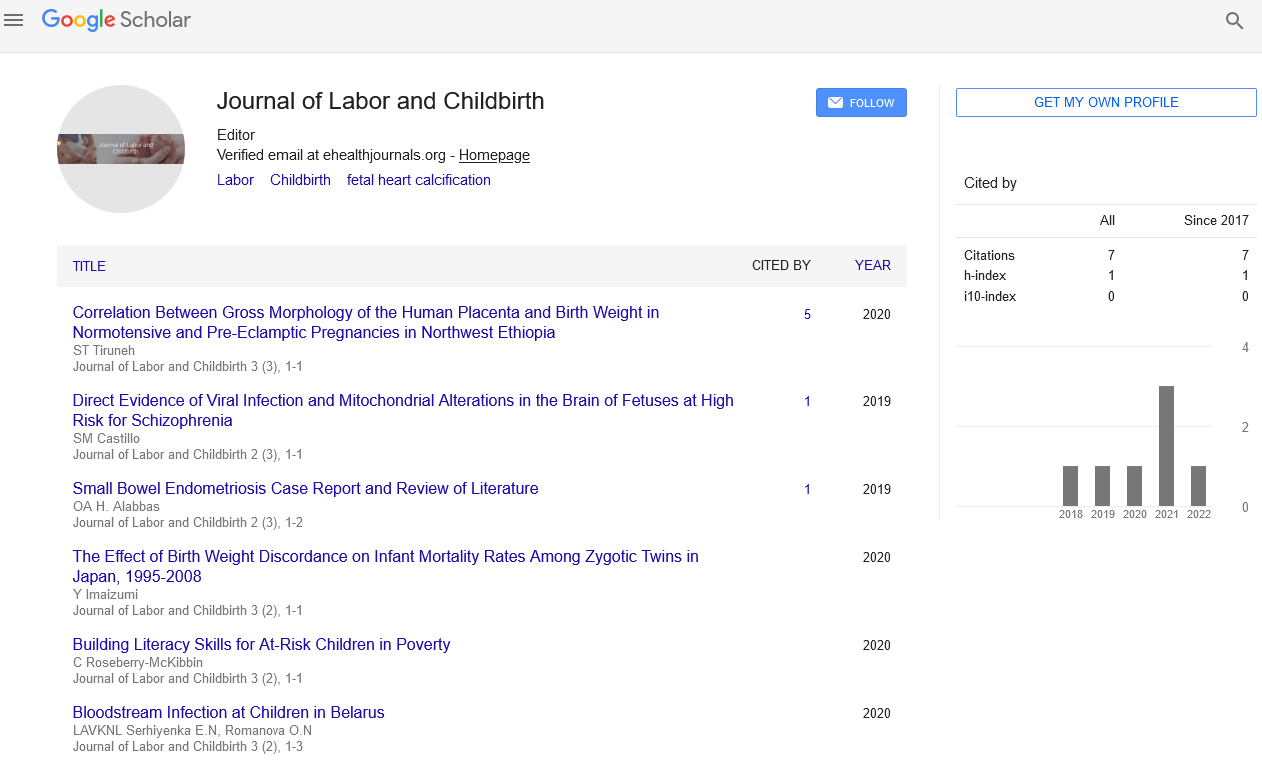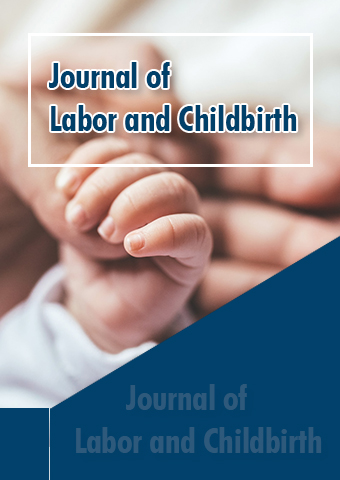Perspective - Journal of Labor and Childbirth (2024) Volume 7, Issue 2
The Intricate Relationship between Fertility and Maternal Labor Supply
- Corresponding Author:
- Hadar Rosen
Department of Gynecology,
Haigh University,
Haifa,
Israel
E-mail: rosenhadar321@gmail.com
Received: 07-Mar-2024, Manuscript No. jlcb-24-129039; Editor assigned: 12-Mar-2024, PreQC No. jlcb-24-129039 (PQ); Reviewed: 26- Mar-2024, QC No. jlcb-24-129039; Revised: 03-Apr-2024, Manuscript No. jlcb-24-129039 (R); Published: 11-Apr-2024, DOI: 10.37532/jlcb.2024.7(2).213-214
Introduction
Fertility and maternal labor supply are two interconnected aspects of women’s lives that have profound implications for both individuals and societies. The decision to have children can significantly impact a woman’s participation in the workforce, influencing economic, social and personal dimensions. In this article, we will delve into the complex relationship between fertility and maternal labor supply, exploring the factors that shape these decisions and the consequences they carry.
Description
Fertility choices and economic considerations
The decision to start a family is influenced by various factors, with economic considerations playing a crucial role. In many societies, the cost of raising children, including education, healthcare and other essentials, is a significant burden. Women often weigh the financial implications of having children against their career aspirations and economic stability. The rising cost of living, coupled with the challenges of balancing work and family life, can lead women to delay or forgo childbearing altogether.
Moreover, the availability and affordability of childcare services play a pivotal role in maternal labor supply decisions. Lack of access to reliable and affordable childcare options may discourage women from rejoining the workforce after giving birth. Countries with supportive policies, such as subsidized childcare and parental leave, tend to see higher rates of maternal labor force participation.
Cultural and societal influences
Cultural and societal norms also shape fertility decisions and maternal labor supply. In some cultures, women may face social pressure to conform to traditional gender roles, emphasizing motherhood as the primary role for women. Such expectations can influence women’s choices regarding family planning and career advancement.
Additionally, societal attitudes toward working mothers can impact maternal labor supply. In environments where working mothers face stigma or discrimination, women may be discouraged from pursuing both career and family goals simultaneously. On the other hand, societies that embrace gender equality and value the contributions of working mothers tend to have higher rates of maternal labor force participation.
Education and career development
The educational and career paths pursued by women can significantly influence their fertility choices and labor supply decisions. Women who invest heavily in education and career development may delay childbearing to focus on their professional goals. The pursuit of advanced degrees and the establishment of a successful career can be time-consuming, leading women to postpone having children until they feel financially secure and established in their careers.
Conversely, women who face barriers to education and career opportunities may experience early childbearing due to limited options. These women might find it challenging to balance family responsibilities with work commitments, impacting their ability to participate in the labor force at the same level as their counterparts with more educational and career opportunities.
Workplace policies and support
The role of workplace policies and support mechanisms cannot be overstated in influencing maternal labor supply. Companies that prioritize family-friendly policies, such as flexible work schedules, remote work options and parental leave, create an environment that facilitates women’s participation in the workforce while accommodating their family responsibilities.
Countries with robust parental leave policies and supportive workplace cultures tend to have higher maternal labor force participation rates. Such policies not only empower women to maintain a work-life balance but also contribute to gender equality in the workplace by fostering an inclusive environment for working mothers.
The impact of fertility and maternal labor supply on women’s economic empowerment
The relationship between fertility and maternal labor supply has profound implications for women’s economic empowerment. When women have the freedom to make informed choices about family planning and career development, they are more likely to achieve economic independence. Conversely, societal constraints that limit these choices can perpetuate gender disparities in the workforce and hinder women’s economic progress.
Studies consistently show that women’s participation in the labor force is positively correlated with economic development. By tapping into the full potential of their female workforce, countries can boost productivity and enhance overall economic growth. Therefore, fostering an environment that supports both fertility choices and maternal labor supply is not only a matter of individual empowerment but also a crucial driver of societal progress.
Challenges and solutions
Despite the progress made in recognizing the importance of balancing fertility choices and maternal labor supply, challenges persist. The gender pay gap, inadequate parental leave policies and limited access to affordable childcare remain significant barriers for women seeking to navigate both family and career responsibilities.
Addressing these challenges requires a multifaceted approach. Companies and governments can implement and improve family-friendly policies, including flexible working arrangements, extended parental leave and affordable childcare options. Initiatives that challenge gender stereotypes and promote cultural shifts toward valuing both parenting and career pursuits are essential to breaking down societal barriers.
Conclusion
The intricate relationship between fertility and maternal labor supply reflects the complex interplay of economic, cultural and societal factors. As societies evolve, it is crucial to create environments that empower women to make choices that align with their personal and professional aspirations. Supporting women in their pursuit of both family and career goals not only benefits individual women but also contributes to the overall well-being and progress of societies.
By fostering gender equality, implementing supportive policies and challenging traditional norms, we can create a world where women can fully participate in the workforce while enjoying the fulfillment of family life. The intersection of fertility and maternal labor supply represents a pivotal area where positive change can lead to a more equitable and prosperous future for all.

